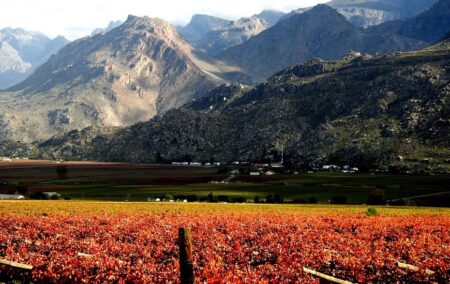As the festive season gets under way, spare a thought for the commitment of those who watch and preside over us. As ordinary people wind down from the year that was – always assuming, after the ravages of the year we’ve had, that they still have something to wind down from – we may find some reassurance in the ongoing commitment that the wheels of policy and governance continue to turn.
This is an important detail to keep in mind. It’s a privilege of ordinary folk that they can turn their attention away from weighty matters at a time like this, keeping their attention fixed on fun and family. But beware that the processes that were in motion before will remain in motion. There is often an odd and unfounded assumption that the end of the year implies that they stop or reset.
In recent weeks, we at the Institute of Race Relations (IRR) have been asked if this is the case with respect to expropriation without compensation. After all – the sense seems to be – after the battering the country has taken, such a manifestly destructive policy cannot seriously be entertained. And the call for comments on the Expropriation Bill has been withdrawn. Some Christmas cheer there, right?
Not necessarily. With little fanfare or recognition, the cabinet ushered in December by approving three policies that South Africans might be well advised to take note of.
The first is its approval of the Preservation and Development of Agricultural Land Bill of 2020. The stated purpose of this is to ensure that high-value agricultural land is protected, and establishing what land may be used for non-agricultural purpose. The second is the Land Donations Policy, which proposes a framework for landowners to gift properties for land reform and state land acquisition. The third is the National Policy on Beneficiary Selection and Land Allocation, which aims to define who will qualify and be prioritised for allocation of landholdings.
Individually, these are perhaps of limited importance. Indeed, they have their merits – worldwide, for example, there is recognition that agricultural land is a scarce and valuable resource to be safeguarded. But they also fit comfortably into plans for ‘radical’ interventions in South Africa’s land governance and land reform.
Compulsory state acquisition
Land Donations have figured prominently in its thinking. President Ramaphosa has referred to the willingness of large companies and landowners to donate some of their holdings. There is no reason to doubt that such intentions exist, and that they might make a useful contribution to land reform. But also recall that the report of the Presidential Advisory Panel on Land Reform envisaged donations being an option to be used as part of what is essentially a process of compulsory state acquisition. Discussing the manner in which governments could source land they needed, its report says:
Individual owners of properties that meet the criteria of land required for redistribution, or for tenure upgrades for farm dwellers, may offer their land as donations, or enter into negotiations with the state, failing which the state may proceed to expropriate.
There is an element of coercion that hangs over this. Having decided what land the state wants, it seeks to position the law and institutional arrangements to get it. Donations are seen as a part of this – formally introducing this policy makes it possible to proceed with this.
Along with the approval of these measures, two other processes remain ongoing. One is the amendment of Section 25 of the Constitution, the other is the Expropriation Bill. Both of these are set to tilt the relationship between the state and those subject to it heavily – of not decisively – in favour of the former.
Be aware that even though the year end has disrupted progress on these initiatives, they remain alive. Some inferred that the apparent withdrawal of the call for comments on the Expropriation Bill indicated a rethink on the matter. ‘Is it over, now?’ While it’s unclear what led to this, it would be a mistake to see in it a major change in the position of the government and ruling party. There is nothing at all to suggest this.
Indeed, a very odd development this month was that the call for comments on the Expropriation Bill was unceremoniously withdrawn only to be reissued a few days later, with the deadline intact – effectively pulling a week out of the period available for comment (and since this was, for much of the country, the last full working week of the year, it probably removed a lot more from this period).
Challenges and risks
South Africa will enter the new year facing challenges and risks substantively similar to the ones it faces today. Very little in the intentions of policy has changed.
However, some encouraging news is that as threatening as this policy drive is, it has not yet been implemented. Much of this can be attributed to the widespread opposition against these measures, not least that by the IRR. But understand that the African National Congress’s approach to policy making – especially on the big-ticket ideological issues such as the assertion of state control over property rights – is premised on doing so with the acquiescence if not the support of those whom it will impact. Secure a compromise, which can be revisited in time as demands are ratchetted up. Mining policy attests to this….
But when resistance is encountered, it is necessary to pull back and await a more favourable opportunity.
But, first, recognise that those threats exist, and have not dissipated. Forthright opposition to bad ideas and corrosive ideology – not appeasement and accommodation – are the appropriate response to the threats South Africa faces.
This will remain the critical demand of the new year.
If you like what you have just read, support the Daily Friend

